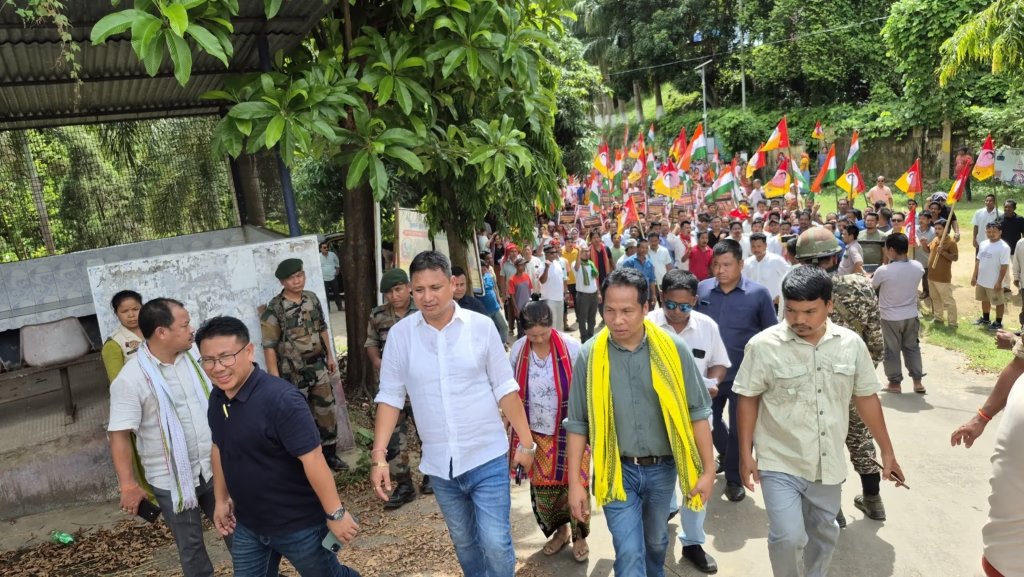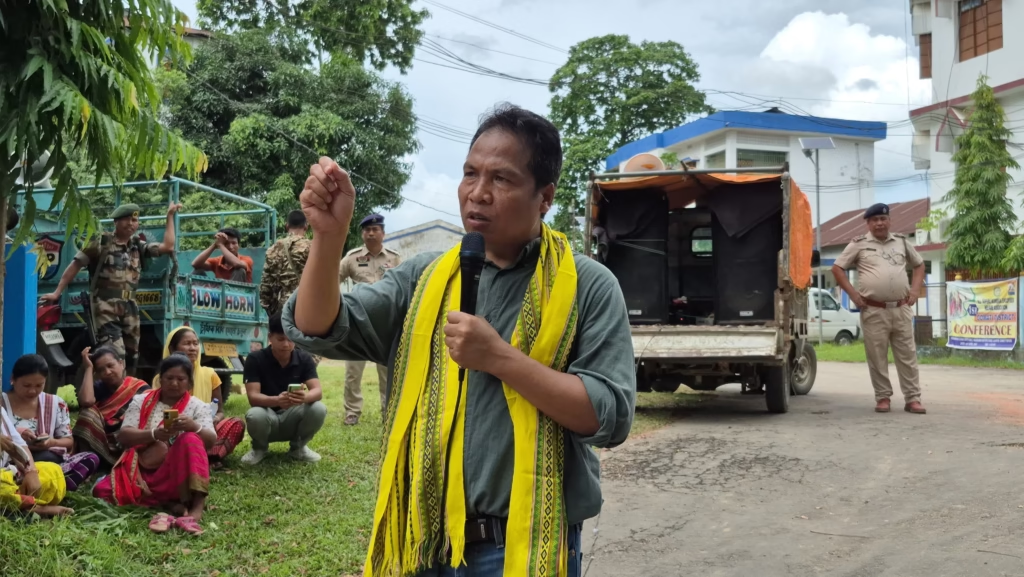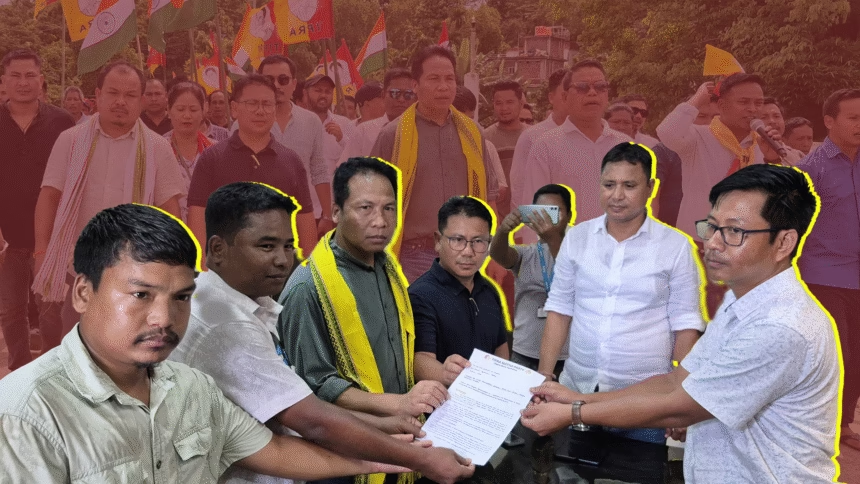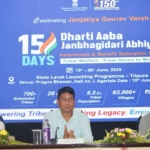Killa, Tripura – June 16, 2025: Under the leadership of Tipra Motha Party chief and Royal Scion Bubagra Pradyot Kishore Manikya Debbarma, a massive rally was held on Monday at Killa RD Block in Gomati district, drawing thousands of indigenous Tiprasa people united in a common cause — the protection of their land, culture, and constitutional rights.

The rally, marked by traditional slogans and a sea of indigenous flags, culminated in the submission of a memorandum to the Governor of Tripura through the Block Development Officer (BDO), Killa. The memorandum urgently demands the identification and deportation of illegal Bangladeshi immigrants residing in Tripura, citing a serious threat to the identity, security, and demographic stability of the indigenous population.

Speaking at the event, Chief Executive Member (CEM) of the Tripura Tribal Areas Autonomous District Council (TTAADC), Purna Chandra Jamatia, raised a pointed question:
“If other states can detect illegal Bangladeshi immigrants and Rohingyas in accordance with the orders of the Ministry of Home Affairs, why is Tripura not implementing the same?”
He warned that inaction could lead to the irreversible loss of indigenous identity and security.
“If we are not united now, we will lose our identity, our land, and our future,” the CEM added passionately.
The Tipra Motha leadership emphasized that the demand aligns strictly with directives from the Ministry of Home Affairs (MHA), Government of India, which mandates all state governments to take legal action against illegal infiltrators.
The event saw strong participation from party MLAs and MDCs, who reiterated that the movement is not driven by politics, but by a constitutional obligation to uphold the rights of the indigenous communities of Tripura. Leaders on the ground stressed the need for collective indigenous action to press for long-overdue justice and demographic protection.
The rally has drawn widespread attention across the state, particularly amid rising concerns over the shifting demographic balance in tribal areas and the urgent need for legal and administrative intervention.
AGULI STAFF DESK









